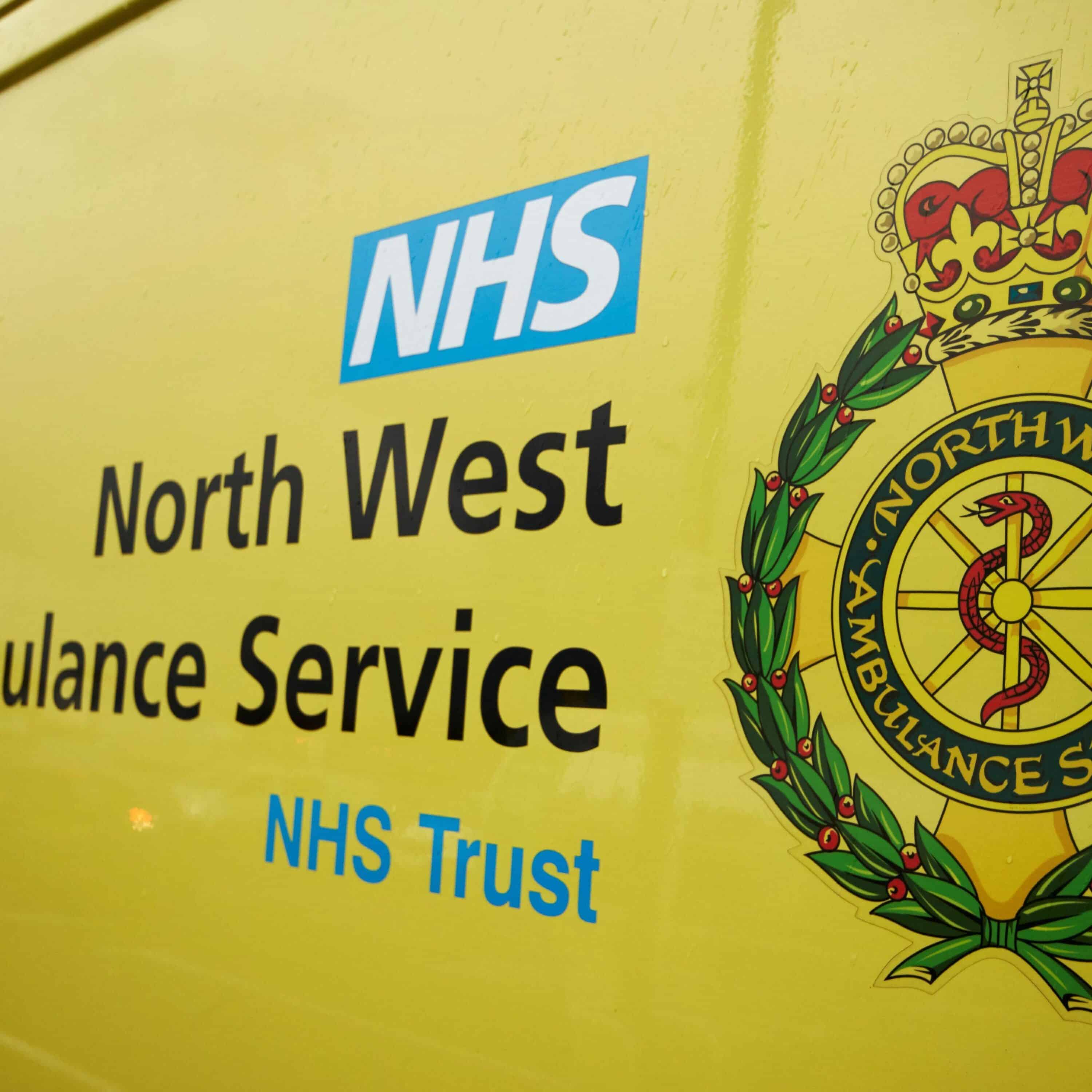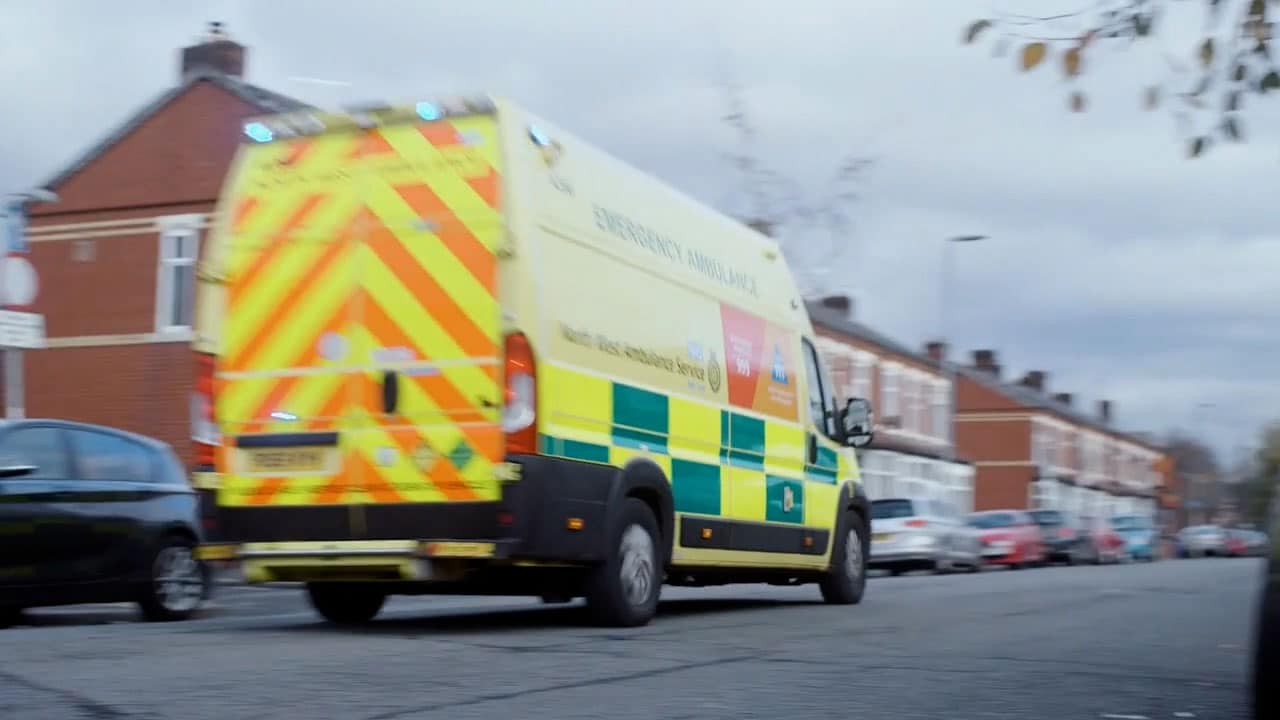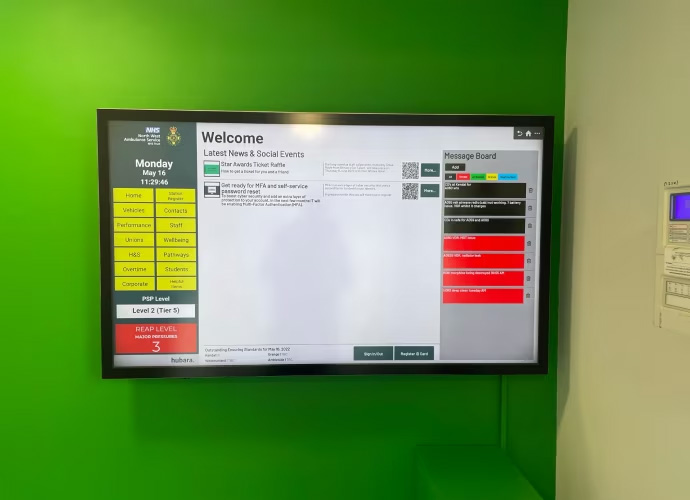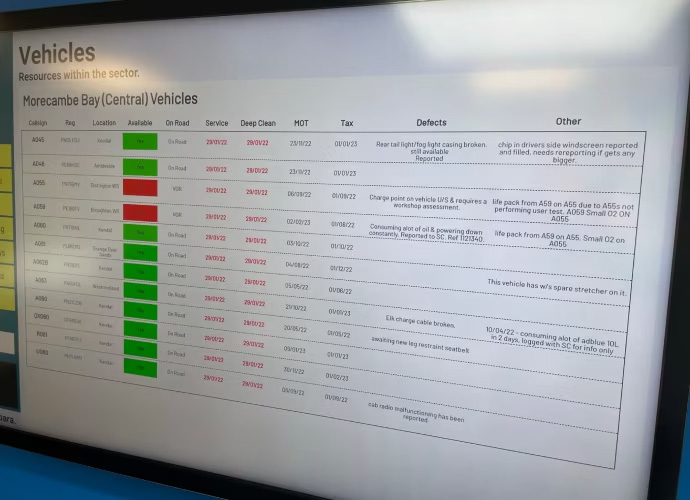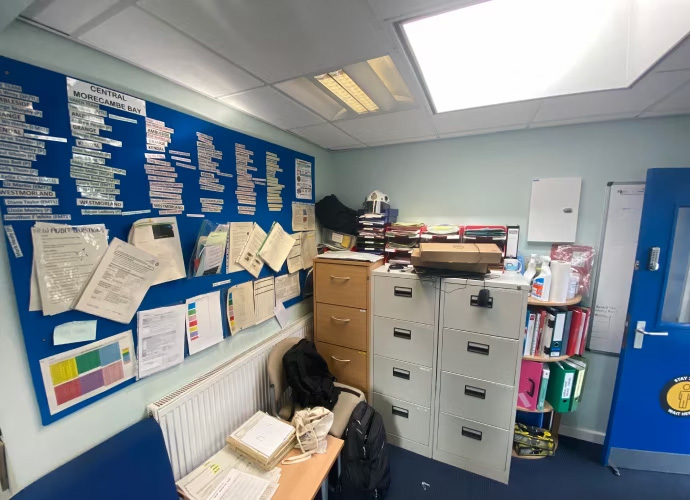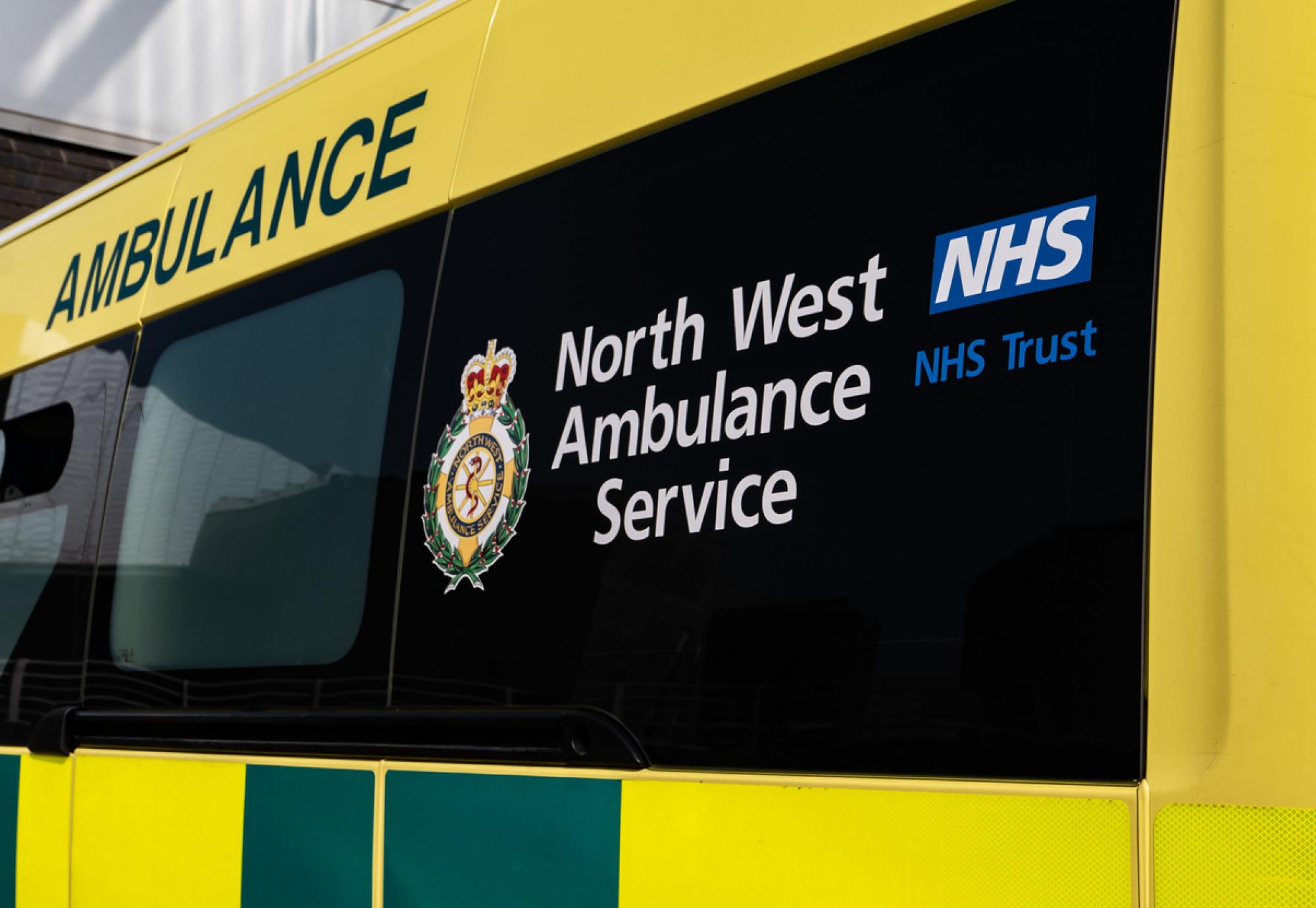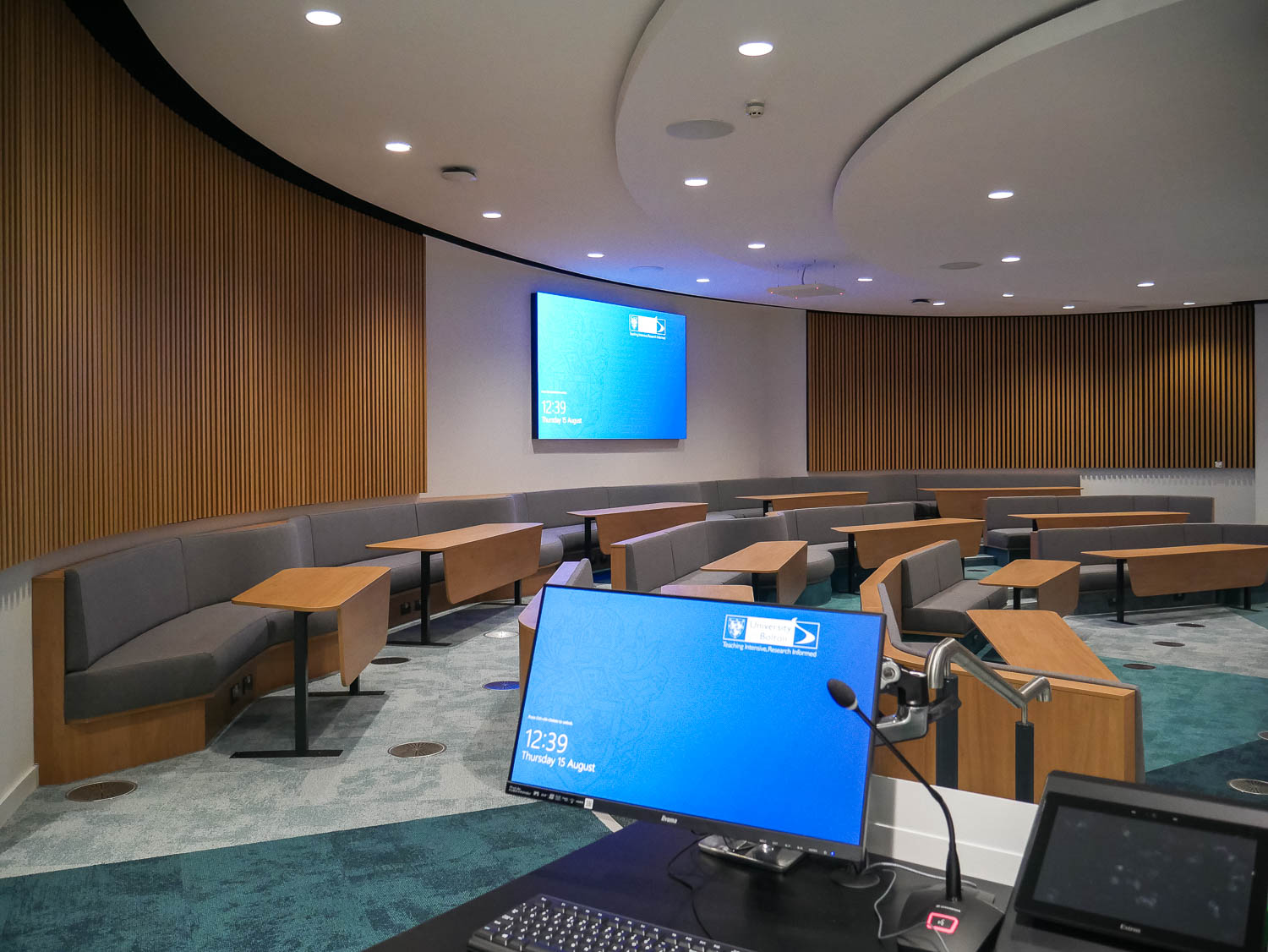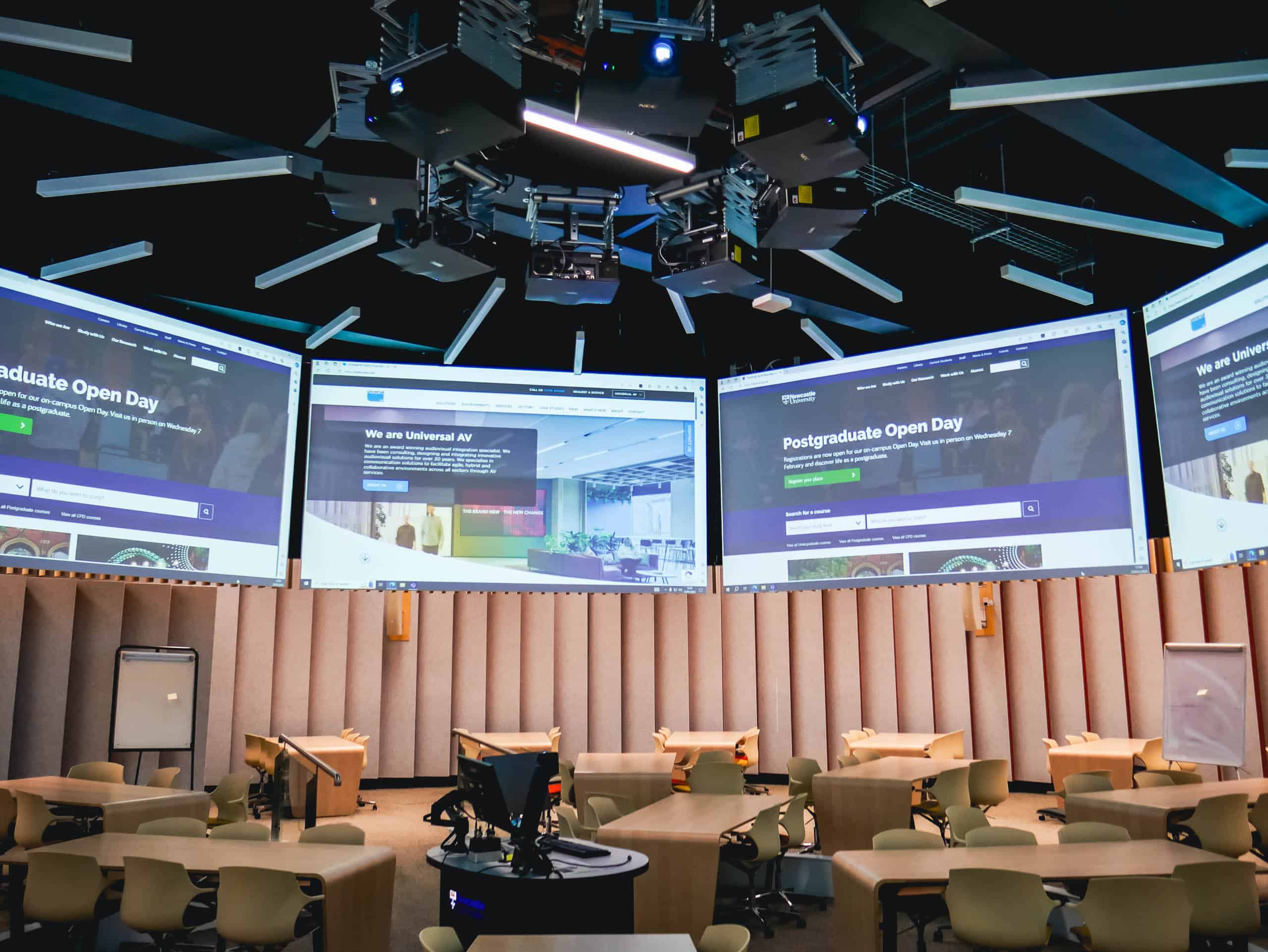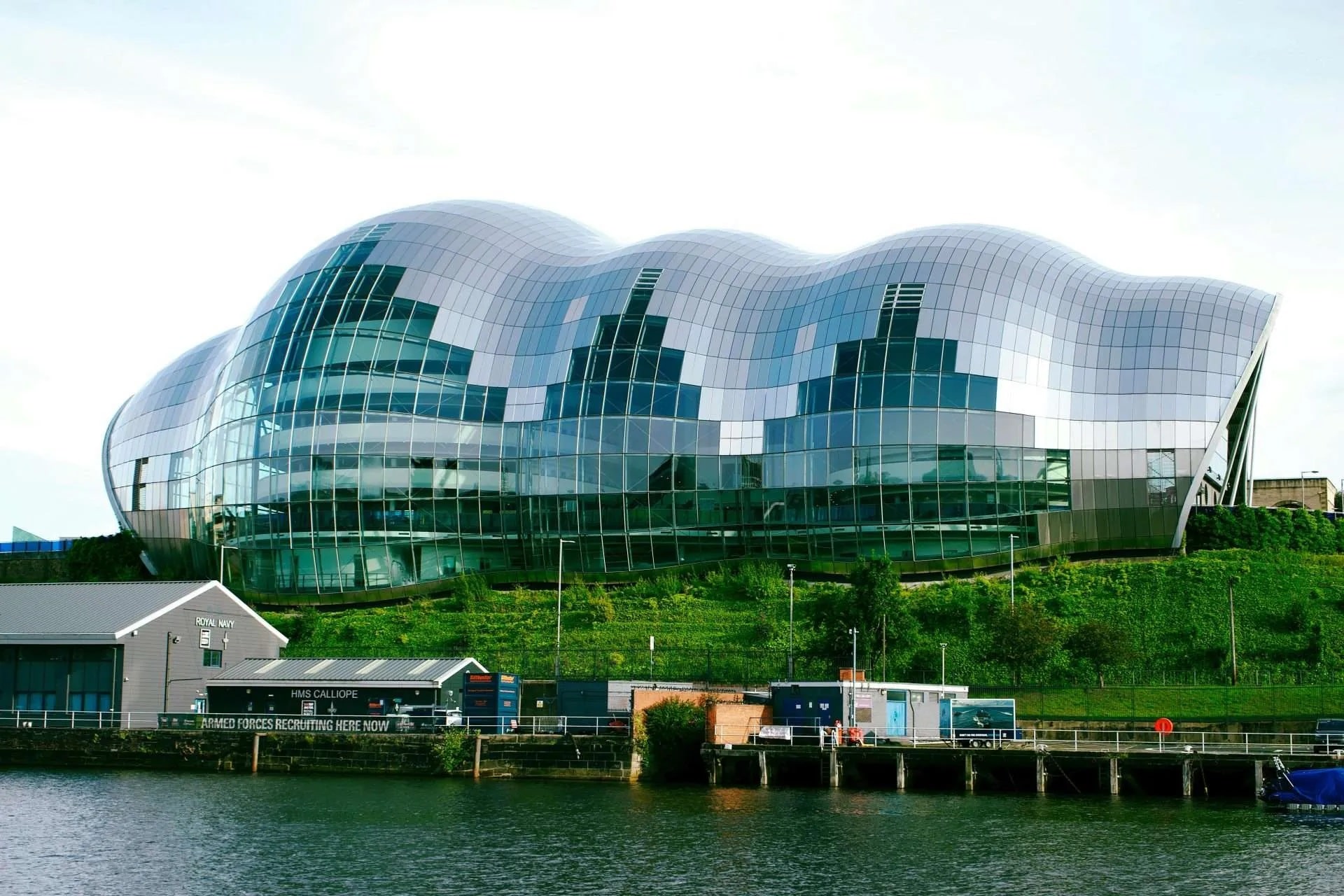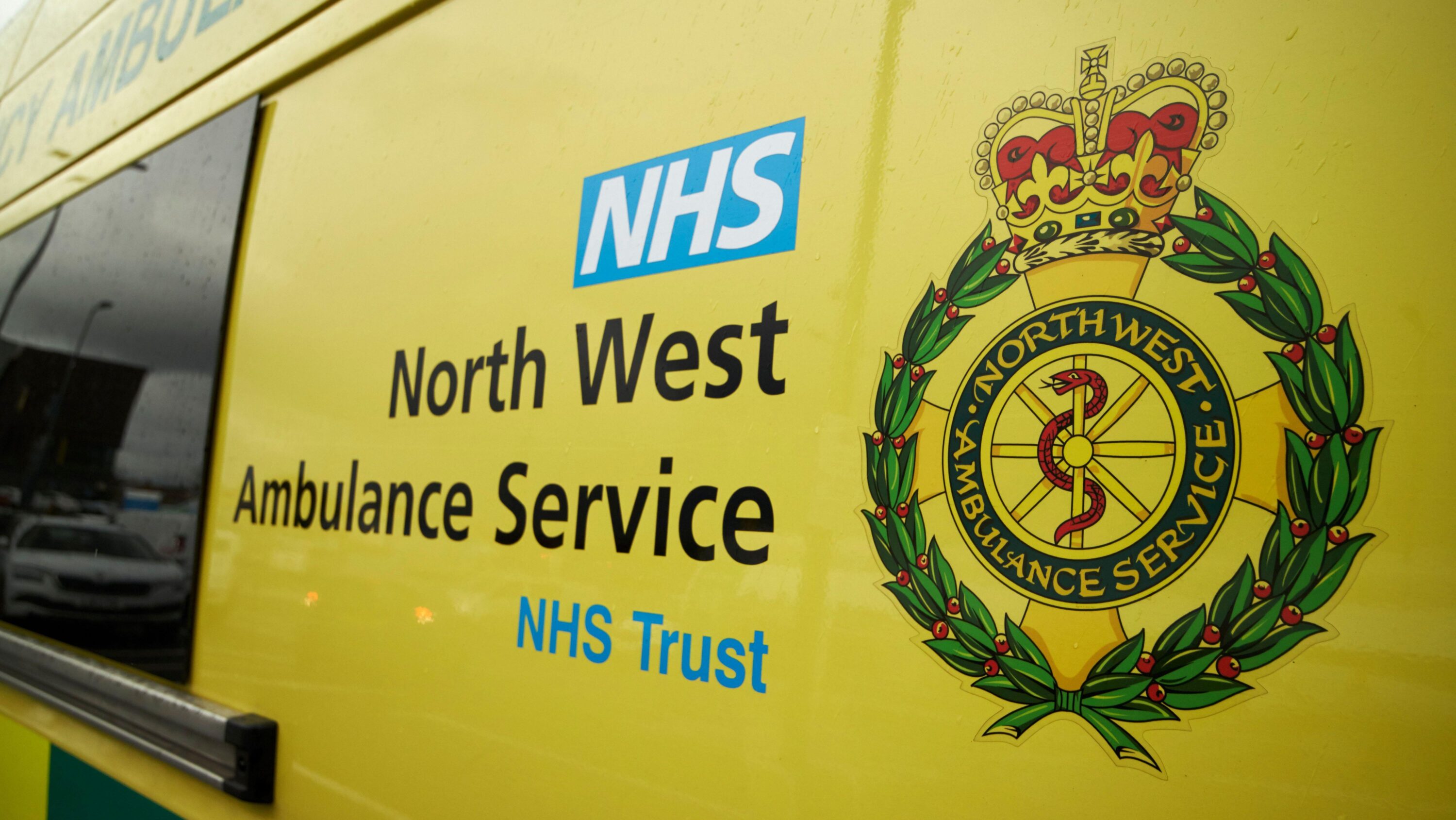
Case Study:
Universal AV Supply North West Ambulance Service with Sony Bravia and TEOS to boost Workplace Efficiency
Download this case study
Serving Seven Million People
The North West Ambulance Service (NWAS) employs over 6,000 staff and serves more than seven million people in the communities of Cumbria, Lancashire, Greater Manchester, Merseyside, Cheshire and Glossop (Derbyshire). As one of ten NHS ambulance trusts providing emergency medical services across England, the service receives approximately 1.3 million 999 calls and responds to over a million emergency incidents every year.
The Issue
The North West Ambulance Service struggled with sharing critical information between staff on the outdated inefficient paper based noticeboard/white boards across 109 ambulance stations.
Eliminating paper based communications
Like many, the NWAS ambulance stations were previously dependent on outdated paper based notice and whiteboards for communicating vital information to staff and paramedics, from vehicle status and location to patient safety plans, hospital arrivals and road closures.
The system was outdated and was in desperate need of reform. In the crucial world of ambulance operations, providing a vital service to the public demands swift and precise responses. The existing paper-based system fell short in adequately supporting staff. Recognizing the need for a transformative change, NWAS sought the expertise of Sony and Universal AV to implement the Sony BRAVIA and TEOS ecosystem. This strategic collaboration aimed to revolutionize the experience for internal stakeholders, ensuring a more streamlined and efficient approach to their essential tasks.
The Solution
Universal AV and Sony worked closely with the North West Ambulance Service to showcase the TEOS solution and how it could positively impact the service and solve critical communication issues.
The solution provided was:
- TEOS cloud-hosted workplace management solution
- 450 x Bravia 4K professional displays
- 90 x TEOS interactive tablets
NWAS has replaced inefficient noticeboards with interactive ‘digital wallboards’ that have already been rolled our across sites. Universal has provided a total of 250 Sony BRAVIA 4K professional displays, ranging in size form 43” to 65”, plus 90 TEOS interactive tablets. Several of the screens are touch enabled with interactive overlays, allowing staff to browse bulletin. The information displayed on screen is centrally controlled and pushed out via the TEOS workplace management solution.
With all devices centrally controlled through the TEOS management solutions, it is easy for employees to approach any screen and perform a range of tasks. It is easy to see how long a vehicle has been at the station, if any are out of service, any equipment that needs replacing, any pertinent information relating to the vehicle and being able to carry out the role. Under the management of TEOS, messages can be ‘pushed’ and displayed at other stations, negating the need for staff to phone through and relay instructions to colleagues at another location. The paper-free system automates more efficient reporting, and provides staff with all the relevant information needed to follow correct protocols.
Achieving Workflow Efficiency
If there is a major incident, the implementation of TEOS now enables team members to access a complete view of all hospitals in the local area, their capacity and time to divert the ambulance there based on current traffic conditions. It ensures the team is able to send resources to the most suitable hospital, is able to work with the police, fire and mountain rescue teams to distribute pertinent information.
The system supports NWAS across all areas not just in critical emergencies. It has the ability to administer employees holidays, allow the self-certification of sick days, the automation of forms and distribution of them to those relevant. An added bonus of the system allows each remote station to work as a smart building, with optimised temperature controls, lighting and further features which ensures maximum efficiency and sustainability.
In a world characterized by modernity and connectivity, NWAS aspired to be trailblazers in a traditionally conventional and legacy sector. The organization has successfully transitioned to operating in a genuinely modern, seamless, and automated manner, aligning itself with the advancements seen in other industries. This deployment revolution has not only significantly affected the internal workings of its ambulance stations but has also extended its influence across the networks of hospitals, police stations, fire stations, and mountain rescue teams.
A more efficient work environment
Previously, upon arriving at the station, staff members underwent a time-consuming process involving signing in on a paper form, checking vehicle availability and status, assessing equipment service needs, and reviewing important updates—dispersed across different parts of the station and various notice boards. This manual procedure took well over ten minutes, a significant chunk of time in an emergency response setting where efficiency is paramount.
With the introduction of Sony’s new notice boards, the process has been streamlined. Staff members can now swiftly sign in at the start of their shift using their ID card, gaining access to all necessary information within 30 seconds. At a glance, they can assess vital details, and if time is a constraint, they have the convenience of electronically transferring important information from the wallboard to their iPad, enabling on-the-go access. This enhancement not only reduces wasted time but also enhances the service’s agility in responding to people in need.
Benefits
The solution has provided the ambulance service with the ability to provide quick, clear up to date access to information. It also allows for the service to share vital information and training with other ambulance services.
Collaborating with Sony to implement the TEOS platform, NWAS has achieved a range of benefits, enhancing the efficiency, safety, and well-being of their most valuable asset—their staff. Given the demanding nature of ambulance crews’ work, characterized by intense pressure, optimizing the start of each shift is crucial to maximize crew availability for emergency responses. Furthermore, during their time on station, it is equally essential to enhance crew well-being and safety.
A significant aspect of this improvement was involving staff in the co-design and interface development of the wallboards. Working directly with the Sony team, staff members contributed to ensuring that critical information is readily available. This collaborative process empowers staff to manage various tasks through the wallboards, such as sending quick notes to colleagues or adjusting station heating controls. By integrating these enhancements, NWAS has not only elevated operational efficiency but also prioritized the overall experience and welfare of their dedicated personnel.
Our Partners on This Project
Other case studies to explore:
-
Investing in the Future
A sleek new building, clean lines, impressive teaching facilities underpinned with the latest in audio visual innovation is what awaits students at the newly built Institute of Medicine at The University of Greater Manchester.
Read More
-
Newcastle University – The Stephenson Building
Newcastle University modernise infrastructure and facilities including AV at the Stephenson Building prioritising sustainability and preservation of its 60-year heritage.
Read More
-
Universal provide The Glasshouse with Digital Signage Upgrade
Universal AV provides The Glasshouse International Centre for Music, formally known as Sage Gateshead, with the latest in digital signage technology.
Read More
Start your project today
To discuss your audio visual needs for your next project contact us. We will work with you to devise a solution to meet your requirements and needs.
Call 01274 200280
Email sales@uniav.com
Send us a message
"*" indicates required fields
